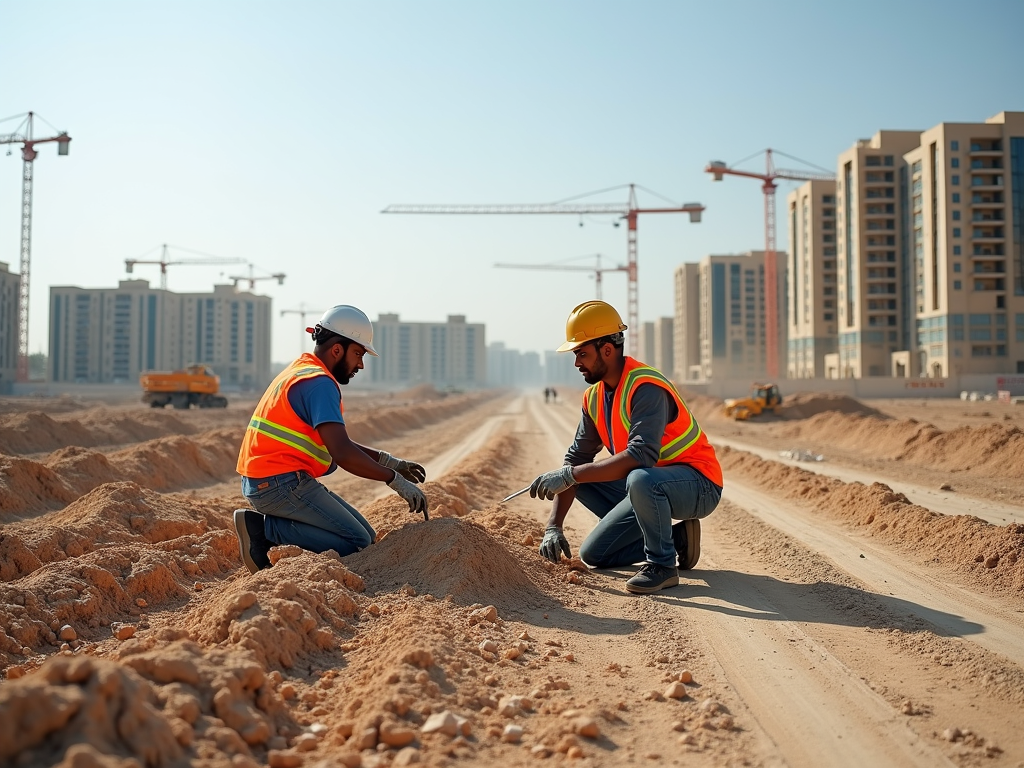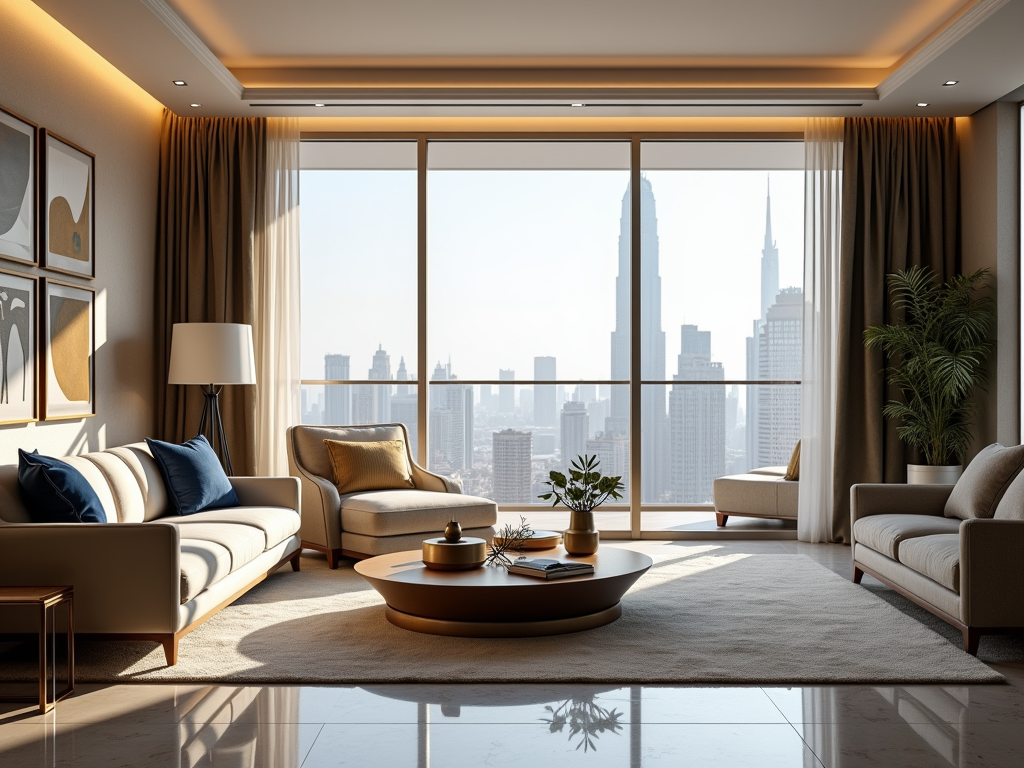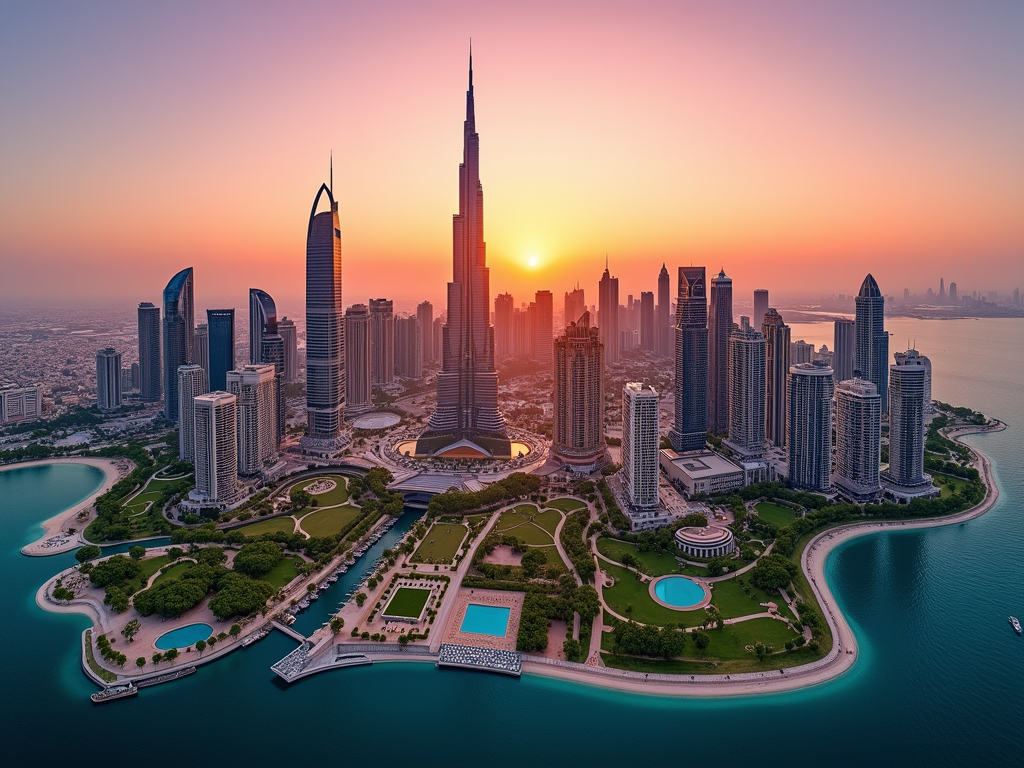Dubai’s real estate market is experiencing a dynamic evolution driven by economic diversification, technological advancements, and changing consumer preferences. This transformation presents unique opportunities and challenges for investors looking to capitalize on the city’s growth. Whether you are a seasoned investor or a newcomer to the market, understanding these trends is crucial for making informed decisions that align with your investment goals.
The Current Landscape of Dubai’s Real Estate Market

Dubai’s real estate sector has long been a cornerstone of the emirate’s economy, and recent developments further underline its significance. The market is characterized by a mix of luxury residential properties, commercial spaces, and innovative community developments that cater to a diverse demographic. Key factors such as favorable government policies, tax incentives, and a growing expatriate population continue to boost demand.
The COVID-19 pandemic posed challenges but also triggered shifts in buyer preferences, leading to increased interest in suburban areas and larger living spaces. Investors are now focusing more on properties that offer value and appealing amenities, with a keen eye on sustainability. Areas like Dubai Hills Estate and Mohammed bin Rashid City are witnessing a surge in popularity as family-friendly locations, hinting at a shift towards community-oriented investments.
Technological Innovations Shaping the Market

Technological innovation plays a pivotal role in the evolution of Dubai’s real estate landscape. The adoption of PropTech solutions is transforming how real estate transactions are conducted, improving transparency and efficiency for investors. Technologies such as blockchain for property transactions and virtual reality for property viewings are enhancing the overall buyer experience.
Additionally, smart home technology is playing a critical role in attracting investment. Properties equipped with the latest home automation features appeal to a tech-savvy demographic that values convenience and energy efficiency. This trend is shaping the types of properties investors choose and driving up demand in specific segments of the market.
Investors should keep an eye on several emerging trends in Dubai’s real estate market that could shape future investment strategies. These include:
- Green and Sustainable Developments: As environmental concerns escalate, properties that prioritize sustainability will gain traction, attracting eco-conscious investors.
- Flexible Workspaces: The rise of remote work has increased the demand for commercial spaces that can accommodate flexible lease options.
- Luxury Affordable Housing: A trend towards developing high-quality yet affordable housing is emerging, targeting middle-income expatriates and locals.
- Emphasis on Mixed-Use Developments: These communities blend residential, commercial, and leisure spaces, creating vibrant living environments that appeal to millennials and young professionals.
- Increased Investment from Global Buyers: Dubai remains a magnet for overseas investors seeking safe and lucrative opportunities in a politically stable environment.
What This Means for Investors
The evolution of Dubai’s real estate market presents a mixed bag of opportunities and challenges for investors. On one hand, the city’s diversification strategy is creating valuation jumps in different segments of real estate. Investors can benefit significantly by targeting properties in key growth areas that align with emerging trends.
Furthermore, staying informed about regulatory frameworks and economic indicators will prove essential in navigating the market effectively. Knowledge of local laws and real estate ownership regulations can prevent potential pitfalls that may arise from uninformed investments.
Lastly, the focus on sustainability suggests that investors who prioritize environmentally friendly projects may stand to gain substantial returns as demand for these properties escalates. As the UAE commits to a greener economy, the market’s inclination towards sustainable developments can open new avenues for profit.
Conclusion
Dubai’s real estate market is on a trajectory of evolution influenced by various factors, including technology, buyer preferences, and sustainability. For investors, tuning in to these changes and being agile in response is key. Those who do so can find promising opportunities amid a landscape undergoing significant transformation. Whether targeting luxury homes, commercial spaces, or innovative community developments, the promise of growth in Dubai’s real estate market remains strong.
Frequently Asked Questions
1. What are some of the key factors driving change in Dubai’s real estate market?
Key factors include economic diversification, technological advancements, changing consumer preferences, and government policies that promote investment.
2. How has the COVID-19 pandemic affected the real estate market?
The pandemic has shifted buyer preferences, leading to increased interest in suburban properties and larger living spaces that can accommodate remote work.
3. What role do technological innovations play in the market?
Technological innovations like blockchain and smart home technology are enhancing transparency, efficiency, and overall buyer experience in real estate transactions.
4. What emerging trends should investors watch for?
Investors should monitor trends such as sustainable developments, flexible workspaces, affordable luxury housing, mixed-use communities, and global buyer interest.
5. How can investors navigate regulatory challenges in Dubai?
Investors can navigate regulations by staying informed about local laws, seeking advice from real estate professionals, and conducting thorough due diligence before investing.
